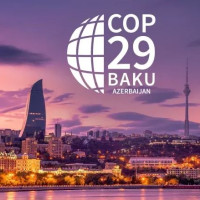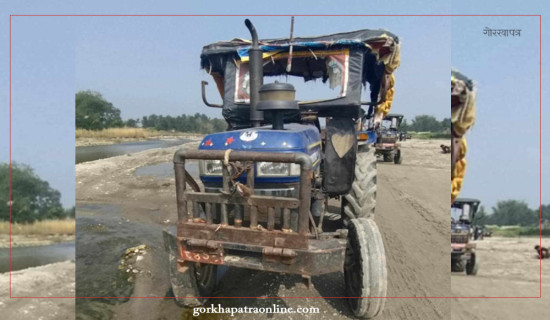- Friday, 15 November 2024
Pinning Hope On COP29
Like every year, this year too, countries from around the globe have come together to attend the 29th Conference of Parties (COP). For an environmentally vulnerable nation like Nepal, COP is considered an important forum. And over these past years, we have vehemently pushed the agenda of climate change because it is directly linked with our livelihoods as well as development endeavours.
The two-week-long COP29 summit began on November 11 in Baku of Azerbaijan and will continue until November 22. The event holds much significance in view of the rapidly rising climate crisis globally. The summit is expected to come up with some much-needed resolutions to deal with the alarming issues of climate change and its subsequent adverse effects on the lives of people. But even before its start, the summit has not been free from criticisms. Azerbaijan is considered a major exporter of natural oils and gases. And COP is all about transitioning away from the use of fossil fuels. Critics have been of the view that the summit is not in tandem with the organiser’s own focus, calling for boycott. However, the Azerbaijani President has blatantly highlighted oil and gas as ‘gifts from God’.
The summit’s key focus will be on ensuring required funds for poor countries to better tackle the growing effects of climate change. In the case of Nepal, it has forwarded its own agenda to discuss in the summit. The agenda mainly focuses on climate financing, mountain specific vulnerabilities, loss and damage, technology transfer and development, and capacity development. Nepal is set to graduate from the Least Developed Countries (LDCs) status in 2026 and its climate vulnerability puts it in the forefront to demonstrate its presence at COP.
It is disappointing that leaders from major carbon emitting countries and big economies have remained absent in the summit. While reasons for absence are varied, their nonappearance puts the agenda of COP in jeopardy. Climate change matters bind both the developing and developed countries today. The excessive carbon emissions on the part of rich and industrialised nations have put small and poor countries, which include mountainous and island countries, in a vicious cycle of vulnerabilities and shocks. A study has shown that, this year, the world is experiencing its hottest temperature till record. Apparently, this is the first time that the average temperature has exceeded 1.5 degrees Celsius above pre-industrial level.
When it comes to matters of climate change, there has always been hypocrisy. And this summit, like all the presiding ones, seems to be witnessing hypocritical behaviours of many rich and industrialised nations who neither want to let go of their double economic growth rate nor are supportive of providing climate funds to vulnerable nations. In this context, poor and susceptible nations are pleading for help as it is a matter of life and death for them. Experts are also worried that the reelection of Donald Trump as the US President may put the whole climate change agenda in shadow. In his previous tenure, Trump had backed off from the Paris Agreement – a decision the Biden administration had reversed. If a superpower like the US doesn't join hands on such a burning global issue, this will be a great misfortune for the entire world. This is a bad scene for millions of vulnerable people around the globe.
As the summit continues, hopefully, the member countries will work out on substantive solutions to the growing climate crisis. Countries must not ignore the continuous alerts nature is giving, else it will become a difficult time for mankind.
















